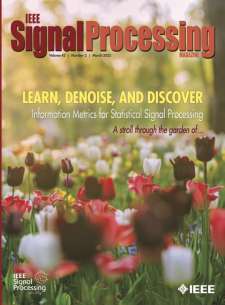- Our Story
- Publications & Resources
- Publications & Resources
- Publications
- IEEE Signal Processing Magazine
- IEEE Journal of Selected Topics in Signal Processing
- IEEE Signal Processing Letters
- IEEE Transactions on Computational Imaging
- IEEE Transactions on Image Processing
- IEEE Transactions on Information Forensics and Security
- IEEE Transactions on Multimedia
- IEEE Transactions on Signal and Information Processing over Networks
- IEEE Transactions on Signal Processing
- IEEE TCI
- IEEE TSIPN
- Data & Challenges
- Submit Manuscript
- Guidelines
- Information for Authors
- Special Issue Deadlines
- Overview Articles
- Top Accessed Articles
- SPS Newsletter
- SigPort
- SPS Resource Center
- Publications FAQ
- Blog
- News
- Dataset Papers
- Conferences & Events
- Community & Involvement
- Professional Development
- For Volunteers
- Information for Authors-OJSP
-
Home
ICASSP@50: A Recap [Conference Highlights]
Conversational Agents in the Era of Large Language Models
Conferences Events IEEE Signal Processing Magazine IEEE SPL Article IEEE TIFS Article IEEE TMM Article IEEE TSP Article Jobs in Signal Processing Lectures Machine Learning Seasonal Schools Signal Processing News SPM Article SPS Distinguished Lectures SPS Newsletter Article SPS Webinar SPS Webinars SPS Webinar Series Webinar webinars -
Our Story
What is Signal Processing?

The technology we use, and even rely on, in our everyday lives –computers, radios, video, cell phones – is enabled by signal processing. Learn More » -
Publications & Resources
-
SPS Resources
- Signal Processing Magazine The premier publication of the society.
- SPS Newsletter Monthly updates in Signal Processing
- SPS Resource Center Online library of tutorials, lectures, and presentations.
- SigPort Online repository for reports, papers, and more.
- SPS Feed The latest news, events, and more from the world of Signal Processing.
-
SPS Resources
-
Conferences & Events
-
Community & Involvement
-
Membership
- Join SPS The IEEE Signal Processing Magazine, Conference, Discounts, Awards, Collaborations, and more!
- Chapter Locator Find your local chapter and connect with fellow industry professionals, academics and students
- Women in Signal Processing Networking and engagement opportunities for women across signal processing disciplines
- Students Scholarships, conference discounts, travel grants, SP Cup, VIP Cup, 5-MICC
- Young Professionals Career development opportunities, networking
- Get Involved
-
Technical Committees
- Applied Signal Processing Systems
- Audio and Acoustic Signal Processing
- Bio Imaging and Signal Processing
- Computational Imaging
- Image Video and Multidimensional Signal Processing
- Information Forensics and Security
- Machine Learning for Signal Processing
- Multimedia Signal Processing
- Sensor Array and Multichannel
- Signal Processing for Communication and Networking
- Signal Processing Theory and Methods
- Speech and Language Processing
- Technical Working Groups
- More TC Resources
-
Membership
-
Professional Development
-
Professional Development
- Signal Processing Mentorship Academy (SigMA) Program
- Micro Mentoring Experience Program (MiME)
- Distinguished Lecturer Program
- Distinguished Lecturers
- Distinguished Lecturer Nominations
- Past Lecturers
- Distinguished Industry Speaker Program
- Distinguished Industry Speakers
- Distinguished Industry Speaker Nominations
- Industry Resources
- IEEE Training Materials
- Jobs in Signal Processing: IEEE Job Site
-
Career Resources
- SPS Education Program Educational content in signal processing and related fields.
- Distinguished Lecturer Program Chapters have access to educators and authors in the fields of Signal Processing
- Job Opportunities Signal Processing and Technical Committee specific job opportunities
- Job Submission Form Employers may submit opportunities in the area of Signal Processing.
-
Professional Development
-
For Volunteers
-
For Board & Committee Members
- Board Agenda/Minutes* Agendas, minutes and supporting documentation for Board and Committee Members
- SPS Directory* Directory of volunteers, society and division directory for Board and Committee Members.
- Membership Development Reports* Insight into the Society’s month-over-month and year-over-year growths and declines for Board and Committee Members
-
For Board & Committee Members
Popular Pages
Today's:
- Information for Authors
- ICASSP@50: A Recap [Conference Highlights]
- (ICME 2026) 2026 IEEE International Conference on Multimedia and Expo
- IEEE Transactions on Multimedia
- IEEE Transactions on Information Forensics and Security
- IEEE Transactions on Image Processing
- IEEE JSTSP Special Issue on Advanced AI and Signal Processing for Low-Altitude Wireless Networks
- Conference Call for Papers
- Information for Authors-SPL
- (CAI 2026) IEEE Conference on Artificial Intelligence 2026
- IEEE Signal Processing Letters
- (ASRU 2025) 2025 IEEE Automatic Speech Recognition and Understanding Workshop
- Guidelines
- Editorial Board Nominations
- Building Bridges for Our Professional Future [President’s Message]
All time:
- Information for Authors
- Submit a Manuscript
- IEEE Transactions on Image Processing
- IEEE Transactions on Information Forensics and Security
- IEEE Transactions on Multimedia
- IEEE Transactions on Audio, Speech and Language Processing
- IEEE Signal Processing Letters
- IEEE Transactions on Signal Processing
- Conferences & Events
- IEEE Journal of Selected Topics in Signal Processing
- Information for Authors-SPL
- Conference Call for Papers
- Signal Processing 101
- IEEE Signal Processing Magazine
- Guidelines
Last viewed:
- (SPAWC 2026) IEEE 27th International Workshop on Signal Processing and Artificial Intelligence for Wireless Communications
- ICASSP@50: A Recap [Conference Highlights]
- TV Content Analysis: Techniques and Applications
- IEEE Journal of Selected Topics in Signal Processing
- IEEE Signal Processing Magazine
- Publications FAQ
- Postdoc in Signal Processing and Acoustics
- Conference Call for Papers
- Call for Proposals: 2028 IEEE International Symposium on Biomedical Imaging (ISBI)
- Call for Proposals: IEEE SSP 2025
- Conferences & Events
- SPS Scholarship Program
- Editorial Board
- (ISBI 2025) 2025 IEEE International Symposium on Biomedical Imaging
- IEEE Transactions on Multimedia
Special Issue on Model-Based and Data-Driven Audio Signal Processing
You are here
Publications & Resources
Signal Processing Magazine
For Authors
Top Reasons to Join SPS Today!
1. IEEE Signal Processing Magazine
2. Signal Processing Digital Library*
3. Inside Signal Processing Newsletter
4. SPS Resource Center
5. Career advancement & recognition
6. Discounts on conferences and publications
7. Professional networking
8. Communities for students, young professionals, and women
9. Volunteer opportunities
10. Coming soon! PDH/CEU credits
Click here to learn more.
Special Issue on Model-Based and Data-Driven Audio Signal Processing
“All models are wrong, but some are useful” - understanding “models” as analytical mathematical models, this aphorism, originating from George Box in 1976, motivates the synthesis of model-based and data-driven audio signal processing as the leitmotif of this special issue.
Acknowledging that current analytical models alone cannot provide the performance and sophistication that state-of-the-art systems should be endowed with, in the last decade, we have witnessed a rapid paradigm shift from model-based algorithms to data-driven ones, using primarily deep neural networks (DNNs), with many successful solutions in diverse application areas, such as speech and audio enhancement, source separation and localization, dereverberation, sparse representations of audio signals, audio rendering, acoustic event detection, music information retrieval, and more.
However, learning-based methods, especially those based on DNNs, do not usually embrace the physical nature of the problem and rather optimize the nonlinear relationship between training data and expected results, relying on only computational power. Many problems call for more efficient solutions that minimize the computational burden, amount of training data, memory requirements, and, consequently, power consumption. Moreover, pure data-driven DNN approaches remain largely unexplainable and noninterpretable. In addition, uncertainty regarding the DNN behavior for previously unseen and dissimilar input data should be avoided in most cases.
SPS Social Media
- IEEE SPS Facebook Page https://www.facebook.com/ieeeSPS
- IEEE SPS X Page https://x.com/IEEEsps
- IEEE SPS Instagram Page https://www.instagram.com/ieeesps/?hl=en
- IEEE SPS LinkedIn Page https://www.linkedin.com/company/ieeesps/
- IEEE SPS YouTube Channel https://www.youtube.com/ieeeSPS
Home | Sitemap | Contact | Accessibility | Nondiscrimination Policy | IEEE Ethics Reporting | IEEE Privacy Policy | Terms | Feedback
© Copyright 2025 IEEE - All rights reserved. Use of this website signifies your agreement to the IEEE Terms and Conditions.
A public charity, IEEE is the world's largest technical professional organization dedicated to advancing technology for the benefit of humanity.













